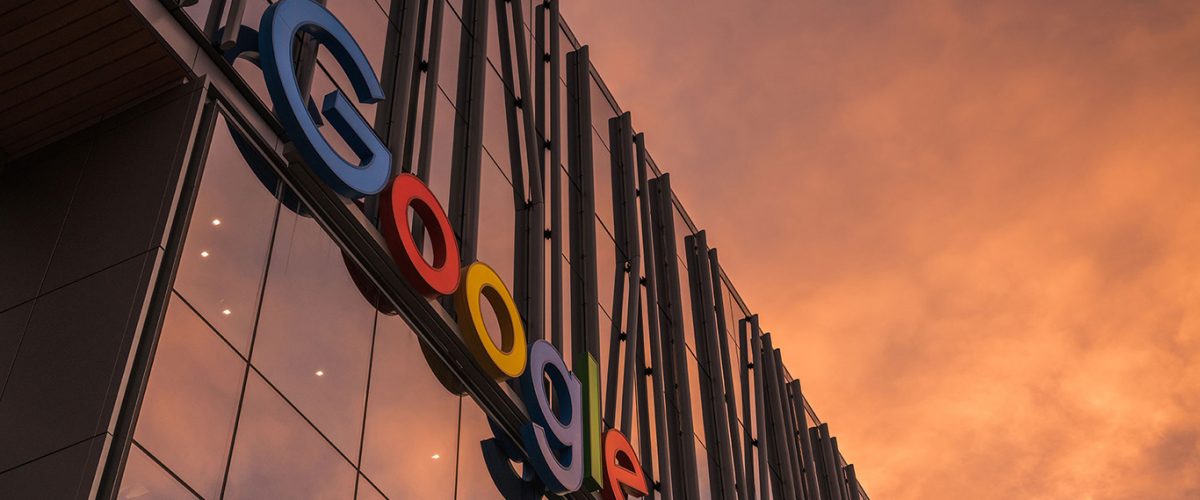Getting results for Googlex
As one of the world’s most recognizable tech giants, Google faces a constant battle to protect its intellectual property. The Reporter discovers how the Firm is working with them in this and other areas.
You’d be hard pressed to find someone who doesn’t use Google products every day, be it their signature search engine, smartphone software, range of applications or smart-home devices. But it could all have been very different had Google failed to successfully fight major patent infringement claims by industry rivals.
In 2012, Finnish phone manufacturer, Nokia, was the first to allege that Google and its partners on the Android operating system (including Samsung, HTC and LG) had infringed several patents Nokia had built up during their domination of the cell phone market in the 1990s.
Nokia took its case to the International Trade Commission (ITC) in Washington, DC.
Washington, DC Partner Shamita Etienne-Cummings explains: “We’d been working with Google since 2010 when former White & Case associate Catherine Lacavera became their head of IP Litigation.
“Soon after, they asked us to represent them in the ITC case. The outcome would have huge implications for the smartphone market in America.
“Had the Commission ruled in Nokia’s favor, Android phones would have been taken off the US market, leaving Apple as the only major supplier, so this was a critical case both for Google and all US consumers who wanted a choice.”
Cases that go before the ITC are characterized by their intensity, often going to trial within months of a complaint being made.
“The Nokia case was extremely pressurized,” says Shamita, “not only because it was our first ‘bet-the-company’ for Google, but also due to the extremely short deadlines. So we were delighted to successfully prove that Nokia’s tech, though fundamental in the 1990s, was no longer being used and was not applicable to the tech used today.”
Despite this initial win, Nokia kept coming back at Google with further claims, but the White & Case team kept on winning, most recently in February of this year.
Since then, the Firm has successfully represented Google in multiple ITC investigations filed by another Finnish-based company, EST, and other US companies including Creative Labs, Neodron and Sonos. Recently, we also successfully defended Google from claims by EchoFactor against Google’s Nest thermostats.
Shamita says: “The EchoFactor complaint was filed shortly before Covid lockdown, which made the investigation particularly complex.
“Because of the highly sensitive nature of the evidence in ITC cases, they generally need to be conducted in person and this was the first case to be conducted virtually, so it set the standard for future trials during the pandemic.
“It was a unique experience that displayed the trust Google has in us, because they couldn’t join us personally for the trial as they usually would.”
Although the Firm’s work with Google has primarily involved ITC cases, we’re also broadening the relationship to include transactional, energy, competition and anti-trust work.
Shamita comments: “We advise them on construction projects, for example when Google needs to develop their database and server capacity while adhering to energy regulations.
“Although the bulk of the work is done in the US, we have also helped them on anti-trust work in Europe.”
According to Shamita, one of the secrets of the growth story with Google is the human relationships we’ve built. She says: “It helps that around half the lawyers on our team are former engineers, so we speak the same language.
“Like most tech companies, Google expects us to be more than legal experts. They want us to know their business and industry inside out, so we can truly partner with them. As a result, we know people in their business units as well as their legal teams and we really feel a part of their successes in the market.
“They also like the personal touch we bring. Early in my career I was lucky enough to work with a partner who was a former director of the ITC.
“He liked to keep his trial teams small, so everyone was significant and felt they were contributing.
“That’s something I’ve put into practice throughout my career and, at one trial at the ITC, we had a team of 10 while one of our co-defendants had a team of around 30 people.
“Our client appreciates that quantity doesn’t always mean quality – they know everyone at every level of our team personally, and that makes for a very close relationship.”
The Firm’s IP work for Google includes four out of seven of our US offices – Washington, DC, Silicon Valley, Boston and New York.
Shamita says: “Going forward, we’d like to continue helping Google as they grow their business and to build the relationship as they continue to protect their ideas and come under increasing political and regulatory scrutiny.
“They are a demanding client, but in a good way. They expect us to be true partners, which is exciting, because we’re honored to get an insight into their future plans. There is huge scope for us to help them in a broad range of areas.”





